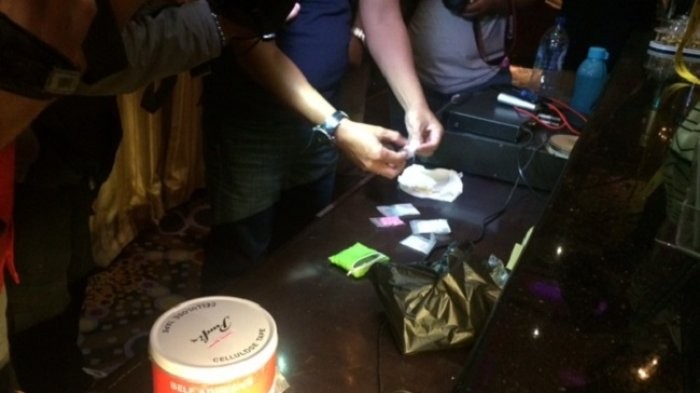Popular Reads
Top Results
Can't find what you're looking for?
View all search resultsPopular Reads
Top Results
Can't find what you're looking for?
View all search resultsExperts, activists renew call to decriminalize drugs
There is a tendency among law enforcers to prioritize imposing criminal law in punishing drug users rather than focusing on medical treatment for the advancement of public health and science as well as to cut the supply-and-demand chain of drugs.
Change text size
Gift Premium Articles
to Anyone
L
egal experts and activists are launching fresh campaigns calling for the decriminalization of drugs so that users can skip the criminal prosecution stage and be conferred with more humane punishments.
“The war against drugs must follow a health-oriented approach, while treatment for drug users should be more humane and in accordance with their respective wrongdoings. The key is: provide support and do not punish,” Samsu Budiman, Brotherhood of Indonesian Drug Victims (PKNI) chairman, said at the launch of Anomali Kebijakan Narkotika (Anomalies in Narcotics Policy), a book written by narcotics experts and activists dedicated to reforming narcotics policy, on Sunday.
In reality, however, there is a tendency among law enforcers to prioritize imposing criminal law in punishing drug users rather than focusing on medical treatment for the advancement of public health and science as well as to cut the supply-and-demand chain of drugs.
“Indonesia has been taking the ‘wrong’ steps in reducing demand for drugs,” Alfiana Qisthi, co-author of the book, told the media on Sunday.
She explained how the government used a repressive approach in its attempt to stop the cycle, such as compulsory rehabilitation, imprisonment and the death penalty.
Reducing the demand for drugs, according to Alfiana, should mean preventing drug use, which could be accomplished through education and information dissemination.
“Counseling is needed for early or nondependent users, while treatment and rehabilitation are for users who have reached the addiction phase. The problem here is that they [drug users] are being generalized and must be rehabilitated,” she said.


















